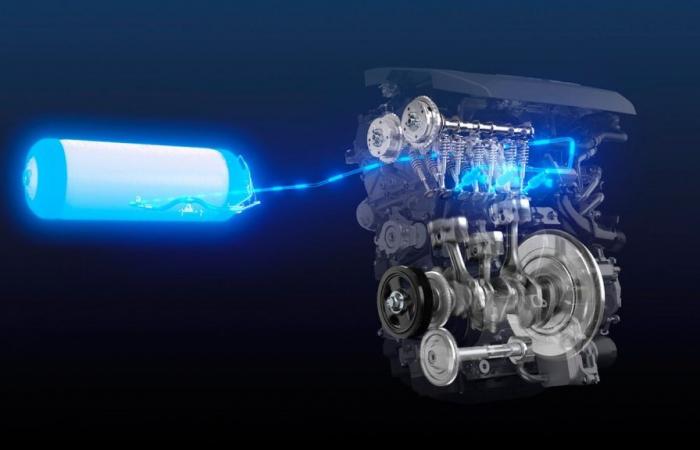At a time when it is already known that China is working on a quantum engine, all the major car brands are moving at full speed in a race to be the first to launch an impossible engine that provides performance and efficiency without CO2 emissionsNow, Japan’s biggest automaker could take the lead by launching the world’s first zero-emission hybrid engine.
The Impossible Engine, Running for the First Time: Focus is on 2030
With more than 30 projects to be completed by 2030, Toyota is fully committed to the Euro 7 regulations which will come into effect in 2027. Although its first electric car did not catch on in the market as expected, the Japanese company shows no signs of being intimidated and intends for its Lexus line to be completely electric by 2030.
But Toyota’s executives are not only committed to sustainability, but also to diversification. Lexus has been the company’s flagship for several years now, thanks to its exclusive design lines, comfort, cutting-edge technology and, especially, its hybrid engine models, which have managed to combine performance and energy efficiency with low emissions.
It is precisely in their line of hybrid cars where the Japanese have decided to bet on the authentic “impossible engine”. We are talking about a Hybrid engine that combines hydrogen gas with electricity. However, this engine has already been tested in competition cars. The real news is that, according to managers, they could be very close to taking these engines to the streets.
The summit of automotive efficiency: The problem is extremely high temperatures
Toyota’s Impossible Engine is a true work of engineering art, compensating for the major problems of hydrogen gas as a fuel by making very precise modifications.
The main drawback is the high temperatures that are produced during the combustion of hydrogen, much greater than those produced with gasoline. This causes greater wear on the engine and a large loss of efficiency. To compensate for this, they have incorporated a direct injection system and, most strikingly, they have reduced engine torque by shortening the piston stroke.
With this small modification, it is possible to compensate for the loss of efficiency of the hydrogen engine in exchange for a reduction in the RPM it can deliver. This loss of power, in turn, is compensated by the electric motor. In this way, they have achieved a 1.5L or 2.9L engine with a naturally aspirated version and its turbocharged alternative to cover different levels of demand.
An engine unlike anything known: This is how they have managed to light it with this fuel
From Toyota they assure that their new impossible hybrid technology engine will have an operation that has little to do with the technologies known so far. Right now tests are being carried out in motorsport competitions, where they are making rapid progress improving components to increase performance and autonomy.
There is no doubt that the brand is firmly focused on making this project a reality, since they apparently hope that their new hybrid engine with hydrogen and electricity will be on the streets by 2027. The mechanism in question will be between 10% and 20% smaller and also 10% more efficient than traditional ones, but, above all, completely free of CO2 emissions.
A new type of engine? Toyota continues to maintain the mystery
For the moment, Toyota is keeping a veil of mystery around the technical specifications of its impossible hydrogen-electric engine. At the opposite end of the spectrum to the promising Japanese innovation, we find the Germans at Volkswagen, who have recently announced that they will continue to bet on the internal combustion engine. Without a doubt, the future looks promising and very diverse.


